Indigenous rights campaigners have hailed a rare victory in Brazil as government troops began evicting illegal settlers from an area that belongs to one of the world's most endangered tribal groups.
The Awá population has been decimated along with the eastern Amazonian forests upon which the nomadic people depend. Disease, murder and the loss of habitat are thought to have reduced their numbers to 450.
Although the Brazilian government demarcated their territory in Maranhão state more than 10 years ago, the Awá reserve has been increasingly occupied by ranchers, loggers and landless farmers.
Last week the government announced it would comply with a court order and evict the settlers. In an online statement http://www.funai.gov.br/ultimas/noticias/2014/01_Jan/20140103_01.html, the government's indigenous affairs department, Funai, said the army, police, justice ministry and environment officials would be involved in the operation.
Starting this week, non-indigenous residents will be given 40 days' notice to leave, with help provided for their resettlement.
Stephen Corry, director of Survival International, which has launched a campaign to save the community, said the operation was a victory for the global campaign to save the tribe.
"This is a momentous and potentially lifesaving occasion for the Awá. Their many thousands of supporters worldwide can be proud of the change they have helped the tribe bring about. But all eyes are now on Brazil to ensure it completes the operation before the World Cup kicks off in June, and protects Awá land once and for all," he said.
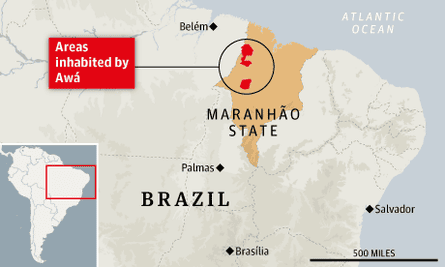
Action to evict the invasores has been slow, and conflicts – including sporadic killings and arson attacks – have occurred.
A Vanity Fair reporter who recently visited the area estimated that illegal logging roads were now only a few miles from an area where the last 100 uncontacted Awá hunt.
A federal judge has described the situation as genocide, and Survival International calls the Awá "the most threatened tribe on Earth".
The government has dragged its feet because it professes to be a supporter of the million-plus landless rural workers and is dependent in congress on the agribusiness lobby, which wants to redraw indigenous land demarcations.
But with questions being asked by the Inter-American Commission on Human Rights, front-page stories on the plight of the Awá in Brazil's bestselling newspaper, and an international campaign featuring Colin Firth, Vivienne Westwood, Sebastião Salgado and other celebrities, the pressure for protection has increased.
Tensions are likely to persist here and in other areas demarcated as indigenous lands. Native populations have been slaughtered since the arrival of the first European settlers. They now make up less than half a per cent of Brazil's population of 199 million, but their territories cover 13% of the country's land.
The farm lobby is desperate to change this. It is proposing a constitutional revision – known as PEC215 – to shift responsibility for demarcation from Funai to congress, which is heavily dominated by agricultural interests.
In December, one farm group in Mato Grosso do Sul held a fundraising drive to support "resistance" by agriculturalists against indigenous groups. Troops have been dispatched to restore order on several occasions. Over Christmas more than 100 members of the Tenharim tribe in Amazonas state were forced to flee when a mob of angry settlers descended on their village and burned down buildings. This followed accusation and counter-accusation over the disputed death of the Tenharim chief and the disappearance of three non-indigenous men.
Last August the National Guard was called in after the killing of a Guarani man, Celso Rodrigues, in Mato Grosso do Sul.
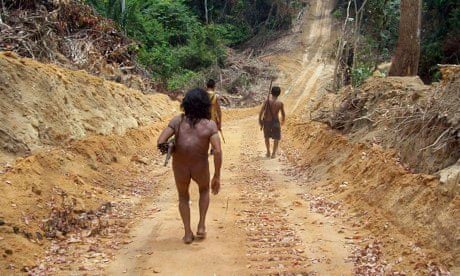
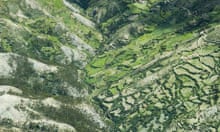
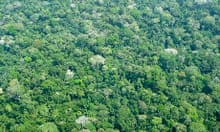
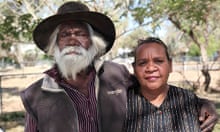
Comments (…)
Sign in or create your Guardian account to join the discussion